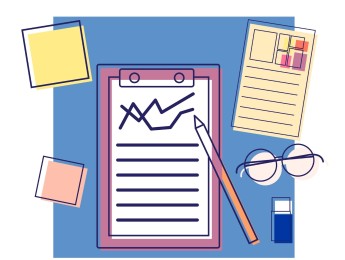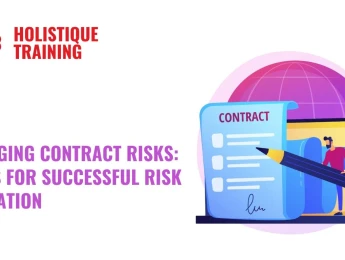- Table of Contents
- What Is Analytical Thinking?
- Five Types of Analytical Thinking
- 1. Deductive Thinking
- 2. Inductive Thinking
- 3. Critical Thinking
- Table 1: Analytical Thinking Metrics
- 4. Systems Thinking
- 5. Creative Thinking
- Analytical Skills Examples
- Data Analysis
- Problem-Solving
- Decision Making
- Research and Evaluation
- Risk Assessment
- Why Do You Need Analytical Thinking Skills at Work?
- Problem-Solving
- Strategic Decision Making
- Improved Efficiency
- Adaptability
- Innovation
- How to Improve Your Analytical Skills
- 1. Practise Critical Reading and Analysis
- 2. Develop Logical Reasoning Through Puzzles and Games
- 3. Seek Different Perspectives Through Discussions
- 4. Analyse Real-Life Scenarios and Case Studies
- 5. Enhance Data Literacy and Statistical Understanding
- 6. Seek Feedback and Learn from Collaborative Projects
- 7. Cultivate a Curiosity for Continuous Learning
- 8. Embrace Failure as a Learning Opportunity
- How Technological Advancements and Analytical Thinking Go Hand-in-Hand
- Big Data Analysis and Predictive Insights
- Artificial Intelligence and Machine Learning
- IoT (Internet of Things) and Data Integration
- Cybersecurity and Threat Analysis
- Innovation in User Experience
- Ethical Considerations and Decision-Making
- Conclusion
Analytical thinking is a cognitive ability that enables individuals to break down complex problems, evaluate information objectively, and draw logical conclusions. It involves examining data, identifying patterns, and applying critical thinking to make informed decisions. In today's fast-paced and data-driven world, possessing strong analytical thinking skills is crucial for success, both in professional and personal life. In this blog post, we will explore the essence of analytical thinking, its various types, real-life examples, and the significance of cultivating these skills in the workplace. Additionally, we will provide practical strategies to help you enhance your analytical thinking abilities.
What Is Analytical Thinking?
Analytical thinking refers to the process of deconstructing complex problems or situations into smaller components to better understand them. It involves gathering relevant information, examining it critically, identifying patterns and relationships, and using logical reasoning to generate insights and make informed decisions. Analytical thinkers can objectively approach challenges, seek multiple perspectives, and consider qualitative and quantitative factors when analysing data.
Five Types of Analytical Thinking
Analytical thinking is a multifaceted cognitive process involving various dimensions, each catering to a specific problem-solving aspect. Understanding these different types of analytical thinking can provide valuable insights into how individuals approach challenges and arrive at solutions. Let's take a closer look at the five key types of analytical thinking:
1. Deductive Thinking
Deductive thinking involves drawing specific conclusions based on general principles or rules. It starts with a broad premise and applies logical reasoning to reach a specific conclusion. This form of thinking is often used in mathematics and formal logic, where established rules lead to definite outcomes. For instance, in mathematics, deducing the value of an unknown variable in an equation based on given mathematical principles exemplifies deductive thinking.
2. Inductive Thinking
Inductive thinking, conversely, involves making generalisations based on specific observations or patterns. It starts with specific data and extrapolates broader principles or theories. Scientific experiments often rely on inductive reasoning to formulate hypotheses. For instance, observing multiple instances of a phenomenon and generalising a scientific law from these observations is a classic example of inductive thinking.
3. Critical Thinking
Critical thinking is a fundamental component of analytical thinking. It involves objectively evaluating information, questioning assumptions, and considering different perspectives to form well-reasoned judgments or decisions. Critical thinkers analyse arguments, assess the credibility of sources, and identify potential biases. This type of thinking is crucial in assessing the validity of various viewpoints and making informed choices based on evidence and logical reasoning.
Metric | Description | Measurement Tools |
Problem Complexity | Degree of intricacy in a given problem | Problem Complexity Scale, Surveys |
Solution Effectiveness | Efficacy of the solution implemented | Key Performance Indicators (KPIs) |
Critical Thinking Skills | Ability to question, analyse, and reason | Critical Thinking Assessment Tests |
Data Interpretation | Proficiency in analysing and drawing insights from data | Data Analysis Software, Surveys |
Decision-Making Quality | Accuracy and appropriateness of decisions made | Decision-Making Models, Feedback Surveys |
Table 1: Analytical Thinking Metrics
4. Systems Thinking
Systems thinking involves understanding how various system components interact and influence each other. It focuses on analysing the relationships and dependencies within a complex system, recognising that changes in one component can impact the entire system. Systems thinking helps identify the underlying causes and consequences of a problem. For example, in environmental science, understanding the interconnectedness of ecosystems and how changes in one species can affect the entire ecosystem demonstrates systems thinking.
5. Creative Thinking
While seemingly distinct from analytical thinking, creative thinking is an essential component of the analytical process. It involves exploring alternative solutions, generating innovative ideas, and thinking outside the box. Creative thinking encourages unconventional approaches to problem-solving, allowing individuals to devise novel solutions to complex problems. Creativity opens doors to new perspectives and ideas in analytical thinking, often leading to breakthrough innovations. Creative thinking is particularly valuable in fields such as product design, marketing, and research, where unique and inventive solutions are highly prized.
Each of these types of analytical thinking plays a unique role in problem-solving. Analytical thinkers often combine these approaches, tailoring their methods to their specific challenges. By understanding and honing these different types of analytical thinking, individuals can enhance their problem-solving abilities, making them invaluable assets in various professional contexts. Developing expertise in these diverse thinking styles empowers individuals to approach problems with a comprehensive and adaptable mindset, ultimately leading to more effective and innovative solutions.
Analytical Skills Examples
Analytical skills are not confined to the realm of theory; they find practical applications in many real-life scenarios, spanning diverse fields and professions. Let’s delve deeper into specific examples to understand how analytical thinking manifests in everyday and professional contexts.
Data Analysis
The ability to analyse and interpret data is paramount in today's data-driven world. Data analysts gather vast amounts of information, ranging from customer preferences to market trends, and employ statistical methods to extract meaningful insights. By identifying patterns, correlations, and trends within datasets, analysts provide valuable information to businesses, aiding in strategic decision-making processes.
Problem-Solving
Analytical thinking underpins effective problem-solving. For instance, consider a project manager facing delays in a software development project. The manager can systematically address each challenge by breaking down the problem into its components—such as identifying coding issues, communication breakdowns, or resource constraints. Through analytical problem-solving, they can allocate resources efficiently, streamline communication channels, and implement strategies to ensure the project gets back on track.
Decision Making
Analytical skills are crucial in decision-making scenarios. For instance, a financial advisor evaluating investment options meticulously assesses each choice's risks, historical performance, and market trends. By employing critical thinking and weighing the pros and cons of different investments, the advisor can make informed recommendations to clients, aligning their decisions with their financial goals and risk tolerance levels.
Research and Evaluation
Researchers rely heavily on analytical skills when conducting experiments or studies. Analytical thinkers assess the credibility of sources, design experiments, and analyse data to draw evidence-based conclusions. In fields such as academia and scientific research, analytical skills are fundamental to generating reliable findings and contributing to the body of knowledge in various disciplines.
Risk Assessment
Analytical thinking is indispensable in risk management. Consider an insurance underwriter evaluating the risk associated with insuring a new technology. The underwriter assesses the risk's likelihood and impact by analysing historical data, industry trends, and the technology's potential vulnerabilities. Based on this analysis, they can set appropriate insurance premiums and establish policies that mitigate potential losses for both the insurer and the insured party.
In each of these examples, analytical thinking involves systematically approaching a problem, gathering relevant information, identifying patterns, and evaluating potential outcomes. By integrating quantitative and qualitative analysis, individuals can make well-informed decisions, develop effective solutions, and mitigate risks successfully.
Moreover, analytical skills are not limited to specific professions; they are invaluable life skills. For instance, when planning a budget, individuals analyse their income, expenses, and financial goals. By critically evaluating their spending patterns and identifying areas for savings, they can create a financial plan that aligns with their objectives. Similarly, individuals often employ analytical thinking in interpersonal relationships to understand others' perspectives, resolve conflicts, and make decisions that promote healthy interactions.
Analytical skills are versatile tools that empower individuals to navigate the complexities of both personal and professional life. By honing these skills, individuals can enhance their problem-solving abilities, make informed decisions, and contribute meaningfully to their communities and workplaces. Whether in the boardroom, the laboratory, or the living room, analytical thinking is a valuable asset that drives progress, fosters innovation, and enriches the quality of decision-making processes.
Why Do You Need Analytical Thinking Skills at Work?
Analytical thinking skills are highly sought after by employers across industries, especially in marketing and finance, according to Test Partnership. In addition, a recent survey revealed that in both 2018 and 2020, a significant majority of surveyed companies regarded analytical thinking as a fundamental skill, surpassing those recognising creative thinking by margins of 35% and 38%, respectively. Here's why these skills are essential in the workplace:
Problem-Solving
Analytical thinking equips individuals with the tools to dissect intricate problems systematically. Employees with strong analytical skills can approach challenges methodically, breaking them down into manageable components. This approach allows for a comprehensive understanding of the issue at hand and enables the formulation of effective solutions. Problem-solving initiatives within organisations benefit immensely from analytical thinkers who can identify root causes, evaluate potential solutions, and implement strategies that address the core issues.
Strategic Decision Making
Strategic decision-making is paramount in the competitive landscape of business. Analytical thinkers excel at critically evaluating information, considering various factors, and foreseeing potential outcomes. They weigh the pros and cons of different courses of action, ensuring that decisions align with organisational objectives. By employing analytical skills, businesses can make well-informed strategic choices and adapt to market trends, technological advancements, and changing consumer preferences. Strategic decisions founded on analytical thinking often lead to sustainable growth and competitive advantage.
Improved Efficiency
Analytical skills enable individuals to analyse existing processes within an organisation. Analytical thinkers can propose improvements that streamline operations by identifying inefficiencies, redundancies, and bottlenecks. Through data-driven analysis, they optimise workflows, allocate resources more efficiently, and enhance overall productivity. This increased efficiency translates into cost savings, improved customer satisfaction, and a competitive edge in the market.
Adaptability
The business landscape constantly evolves, requiring organisations to adapt swiftly. Analytical thinkers possess the agility to analyse shifting market dynamics, emerging trends, and evolving consumer behaviours. Businesses can proactively adjust their strategies and offerings by recognising patterns and anticipating market shifts. Analytical thinking enables organisations to remain agile and responsive, ensuring they are always one step ahead of the competition.
Innovation
Creative thinking, a subset of analytical skills, fuels innovation within organisations. Analytical thinkers explore unconventional approaches, identify opportunities, and conceptualise innovative solutions to existing problems. By encouraging a creative and analytical thinking culture, organisations foster an environment where employees are empowered to propose novel ideas. This innovative mindset leads to developing new products, services, and processes, driving continuous growth and ensuring long-term sustainability.
Incorporating analytical thinking into the workplace culture cultivates a team of individuals who can collaborate effectively, adapt to change, and contribute meaningfully to the organisation’s goals. Businesses that prioritise the development of analytical skills among their employees create a workforce that is proficient in their roles and capable of addressing challenges with confidence and precision.
Moreover, the collaborative efforts of analytical thinkers can lead to multidisciplinary problem-solving. When professionals from diverse backgrounds with strong analytical skills come together, they bring unique perspectives to the table. This collaborative approach often results in innovative solutions that draw upon the collective analytical prowess of the team, leading to breakthroughs and advancements that can propel the organisation to new heights.
In summary, the significance of analytical thinking in the workplace cannot be overstated. It is a catalyst for problem-solving, strategic decision-making, efficiency improvement, adaptability, and innovation. Businesses that recognise the value of analytical skills and foster a culture that encourages analytical thinking empower their employees to tackle challenges head-on, navigate uncertainties, and contribute significantly to the organisation’s success. Embracing and nurturing analytical thinking within the workplace is not just an investment in the employees but an investment in the organisation’s future, ensuring resilience, growth, and prosperity in an ever-changing business landscape.
How to Improve Your Analytical Skills
Improving analytical skills is not an overnight endeavour; it requires dedication, practice, and a strategic approach. Individuals can enhance their analytical thinking abilities by employing specific strategies and techniques, becoming more adept at solving problems, making informed decisions, and thriving in the complex modern world. Here are some effective strategies to help you sharpen your analytical edge:
1. Practise Critical Reading and Analysis
Engage with various texts from different disciplines, including articles, essays, and research papers. While reading, actively question the author's arguments, identify underlying assumptions, and assess the evidence provided. Pay attention to the logical flow of ideas and analyse the effectiveness of the author's reasoning. By critically evaluating written materials, you develop the ability to discern valid arguments from flawed ones, honing your analytical skills.
2. Develop Logical Reasoning Through Puzzles and Games
Logical puzzles, Sudoku, chess, and strategy games challenge your mind and enhance logical reasoning skills. These activities require you to analyse patterns, consider multiple possibilities, and decide based on available information. Regular engagement with such games sharpens your analytical thinking, improving your ability to think critically and logically when faced with real-world problems.
3. Seek Different Perspectives Through Discussions
Engage in discussions with people from diverse backgrounds and viewpoints. Listening to different perspectives broadens your understanding of various issues and challenges your assumptions. It encourages you to analyse arguments critically, defend your own viewpoint, and consider alternative explanations. Engaging in debates and discussions fosters analytical thinking by requiring you to evaluate information critically and make persuasive, evidence-based arguments.
4. Analyse Real-Life Scenarios and Case Studies
Apply analytical thinking to real-world situations and case studies. Break down complex problems into smaller components, consider multiple solutions, and evaluate the potential outcomes of each option. Analysing real-life scenarios allows you to practise problem-solving in a practical context, honing your analytical skills through hands-on experience. Case studies allow you to explore multifaceted issues, enabling you to apply analytical thinking to intricate real-world challenges.
5. Enhance Data Literacy and Statistical Understanding
In the age of big data, understanding statistics and data analysis is essential. Familiarise yourself with statistical concepts such as correlation, regression, and probability. Learn to interpret charts, graphs, and data visualisations. Proficiency in data analysis tools like Excel, Python, or statistical software enhances your ability to analyse and draw insights from data sets. By improving your data literacy, you can approach problems with a quantitative perspective, making your analytical thinking more robust and effective.
6. Seek Feedback and Learn from Collaborative Projects
Engage in collaborative projects and seek peer, mentor, or expert feedback. Collaborative environments expose you to diverse analytical approaches and problem-solving strategies. Constructive feedback provides valuable insights into different perspectives, allowing you to refine your analytical thinking skills. By learning from the experiences and expertise of others, you expand your analytical toolkit, incorporating new methods and perspectives into your problem-solving repertoire.
7. Cultivate a Curiosity for Continuous Learning
Stay curious about the world around you. Explore different disciplines, learn about varied cultures, and delve into subjects beyond your immediate area of expertise. Continuous learning broadens your knowledge base and exposes you to diverse perspectives, enhancing your analytical thinking. Attend seminars, webinars, and workshops, and pursue online courses to stay updated with the latest developments in your field. Cultivating a thirst for knowledge stimulates your analytical faculties, encouraging you to approach problems well-informed and inquisitively.
8. Embrace Failure as a Learning Opportunity
Analytical thinking involves experimentation and learning from mistakes. Embrace failures as opportunities for growth. When faced with setbacks, reflect on the reasons behind the failure, analyse the decisions and assumptions that led to the outcome, and identify alternative approaches. By learning from failures, you refine your problem-solving strategies and develop resilience. Embracing failure as a natural part of the analytical process fosters continuous improvement and strengthens your analytical thinking skills over time.
Incorporating these strategies into your daily routine and mindset can significantly enhance your analytical skills. Remember that analytical thinking is not a fixed trait but a dynamic ability that can be cultivated and refined through consistent practice and a proactive approach to learning. By incorporating these strategies, you are improving your problem-solving abilities and equipping yourself to navigate the complexities of the modern world with confidence and precision.
How Technological Advancements and Analytical Thinking Go Hand-in-Hand
In the digital age, the synergy between technological advancements and analytical thinking has driven innovation, problem-solving, and progress. As technology evolves at an unprecedented pace, analytical thinking acts as the compass, guiding the effective utilisation of these advancements across various domains. In fact, statistics show that the demand for jobs prioritising analytical skills surged, experiencing a substantial 92% growth in employment opportunities. Let’s explore the intricate relationship between technological advancements and analytical thinking and how they complement each other in shaping the future.
Big Data Analysis and Predictive Insights
Technological advancements have ushered in the era of big data, where massive volumes of information are generated and collected. Analytical thinking is instrumental in processing and analysing this vast sea of data. Analysts can identify patterns, trends, and correlations within big datasets by employing advanced algorithms and data analytics tools. Analytical thinking enables businesses to extract valuable insights from big data, leading to data-driven decision-making and predictive analytics. These predictive insights empower organisations to anticipate market trends, customer behaviours, and emerging opportunities, facilitating strategic planning and innovation.
Artificial Intelligence and Machine Learning
Artificial Intelligence (AI) and Machine Learning (ML) are revolutionising various industries, from healthcare to finance. Analytical thinking plays a pivotal role in developing and applying AI and ML algorithms. Analytical thinkers design algorithms to process vast datasets, recognise patterns, and make intelligent decisions. Moreover, analytical thinking is essential in validating AI models, ensuring their accuracy and reliability. By combining analytical prowess with AI capabilities, organisations can automate complex tasks, optimise processes, and enhance efficiency. Analytical thinking guides the ethical use of AI, addressing biases and ensuring responsible AI deployment.
IoT (Internet of Things) and Data Integration
The proliferation of IoT devices has created interconnected ecosystems, generating real-time data from various sources. Analytical thinking is essential in integrating and analysing this diverse dataset. By applying analytical skills, professionals can derive meaningful insights from IoT-generated data. For instance, in smart cities, analytical thinkers can analyse data from sensors, traffic cameras, and weather stations to optimise traffic flow and enhance urban planning. Analytical thinking enables interpreting complex data streams, allowing organisations to make data-driven decisions that enhance efficiency, safety, and sustainability.
Cybersecurity and Threat Analysis
With the digital landscape expanding, cybersecurity has become paramount. Analytical thinking is fundamental in cybersecurity practices, particularly threat analysis and detection. Analytical thinkers assess potential vulnerabilities, analyse attack patterns, and anticipate cyber threats. By employing analytical skills, cybersecurity experts can stay one step ahead of cybercriminals, identifying and mitigating security risks. Analytical thinking in cybersecurity involves analysing large datasets to detect anomalies, recognising patterns indicative of malicious activities, and devising proactive security measures. Analysing cyber threats critically is essential in safeguarding sensitive information and ensuring the integrity of digital systems.
Innovation in User Experience
Technological advancements often lead to innovative user interfaces and experiences. Analytical thinking is crucial in understanding user behaviours, preferences, and pain points. Analytical thinkers analyse user feedback, conduct usability tests, and interpret user data to enhance the user experience (UX). By employing analytical skills, designers and developers can optimise websites, applications, and products, ensuring intuitive navigation and user satisfaction. Analytical thinking guides the iterative UX design process, allowing organisations to create user-centric digital solutions that resonate with their audience.
Ethical Considerations and Decision-Making
As technology advances, ethical considerations surrounding its use become more complex. Analytical thinking is essential in ethical decision-making related to technological advancements. Analytical thinkers assess technological innovations' social, cultural, and ethical implications. They critically evaluate the impact of technologies on privacy, diversity, and societal values. Ethical, analytical thinking ensures responsible technology development and deployment, addressing bias, fairness, and transparency concerns. By applying analytical reasoning, organisations can navigate ethical dilemmas, making decisions that align with societal values and ethical principles.
The symbiotic relationship between technological advancements and analytical thinking is transformative. Technological advancements provide the tools and platforms, while analytical thinking is the intellectual framework that harnesses their potential. Analytical thinkers are at the forefront of leveraging technology to solve complex problems, innovate, and drive societal progress. As technology evolves, analytical thinking will remain the cornerstone, ensuring that these advancements are harnessed ethically, effectively, and responsibly, paving the way for a future shaped by innovation and informed decision-making.
Conclusion
Analytical thinking is a powerful cognitive skill that empowers individuals to tackle complex problems, make informed decisions, and drive innovation. Analytical thinkers can unlock new possibilities and create positive outcomes by breaking down challenges into manageable parts, analysing information objectively, and drawing logical conclusions. Whether you're navigating the professional landscape, pursuing personal goals, or simply seeking to expand your cognitive horizons, developing and enhancing your analytical skills will prove invaluable. By incorporating the strategies outlined in this blog post into your daily life, you can cultivate a sharper and more refined analytical mindset, setting yourself up for success in an increasingly complex and data-driven world.
Are you ready to embark on a transformative journey that will elevate your analytical skills to new heights? Discover the power of ‘Business Analysis Skills and Techniques,’ our comprehensive course designed to hone your analytical acumen and propel your career forward. Join us today and unlock the secrets to mastering the art of analysis, opening doors to limitless possibilities and achievements in the dynamic business world. Seize this opportunity and transform your future now!























